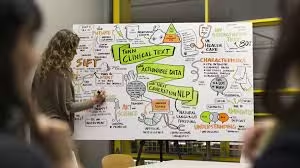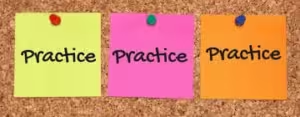Science Exams – Picture this, there you are in the quiet classroom, holding a pencil, and your heart pumping fast as you set your sights on the science examination paper. The clock is ticking loudly, and every second is equal to an eternity passing by. But what if I were to tell you that this very day of tension could be blown away?
Imagine you had the power to come up with strategies to make your science exam experience less stressful and more about showing off all the hard work you’ve done with your learning. Get ready for a journey that will turn your views on science exams around from unbearable torture to totally doable.
1. Master the Art of Active Recall
Those days of passive reading, hoping the information sticks, are long gone. Active recall is your new best friend. You’re going to test yourself on the material learned by forcing your brain to retrieve information actively. Create flashcards, quiz yourself, or describe concepts to an imaginary audience. The more times you practice recalling information, the stronger your memory becomes, and this will help during exam time. This technique is used by AI in Smart Cities which is rapidly gaining traction.

2. Harness the Power of Spaced Repetition
Cramming the night before an exam?
That’s so last semester. This technique will spread out your study sessions over time as you revisit topics at increasing intervals. The thing that drives the strength of long-term retention is repetition. It strengthens what you have learned, and through this continuous reinforcement, remembering critical information just becomes so much easier. Start early and review often—your exam performance will thank you for it.
3. Visualize Complex Concepts
Science is a field where ideas can seem extremely articulate and processes can appear to be very intricate. Do not feel intimidated. In cases like these, it is a good idea to turn to some form of visualization. You can use mind maps or draw diagrams or sketches of the processes you are studying.

Visualizing not only helps you understand the concept better; such an approach also greatly facilitates recalling information during exams. Isn’t that a win-win? Complex Concepts can be such as the inner working of the iOS 18 Launched by Apple.
4. Leverage the Power of Mnemonics
Forgetting long lists or complicated sequences? Mnemonics are here to help. Build catchy phrases, acronyms, or even ridiculous stories that help you keep in mind the key information. For instance, “My Very Educated Mother Just Served Us Noodles” can help you recall the order of planets in our solar system. The more creative and personal your mnemonics, the better they will work.
5. Practice, Practice, Practice
There is no alternative to this. Gather some past papers, and sample questions, or even make your own with the help of your course outline. Go through it simulating exam conditions as best as possible. Time your questions and avoid any major diversions from taking notes.

This will help you get very used to the exam format and leave you better placed for confidence and time management come the test. Something to help you started is a topic such as Disarticulation of the Femur A comprehensive Guide
6. Teach, Learn, and Ace the Science Exams
Do you want to learn something? Teach it to another person
This can be a study friend, younger sibling, or even your pet goldfish. You will find that explaining in your words gives you a focus and presses you to sort your thoughts out while filling in the gaps of knowledge. This can also be a good revising tool when teaching others, hence killing two birds with a stone.
7. Use Association Effectively
Our brains are wired for connection. Relate new information to something you already know or care about. For example, relate fractional distillation of liquified air to cooking or compare DNA to parts of a Leaf. These connections make the cerebral tangible and therefore memorable, giving you a powerful edge during exams.
8. Use Active Learning Techniques
Passive reading is out; active learning is in. Engage with material through hands-on experiments, interactive simulations, or even role-playing scientific processes. Now more than ever, many online platforms offer virtual labs and interactive modules. The more you interact with the material, the deeper your understanding becomes, making exam questions feel like a walk in the park.

9. Optimize Your Study Environment
Your environment can also make or break your study sessions. Make your own study space that is comfortable, well-lit, and free from distractions. Experiment a little with background noise. Some people do great with soft music, while others need complete silence to focus. Find what works for you and stick to it. A conducive environment can significantly boost your focus and retention. Find out more about Data Processing.
10. Take Care of Your Brain
Last but not least, one should always keep in mind that the most precious possession one has during exams is the brain. Feed it properly with a balanced diet, be sure to take a lot of water, and get enough sleep. Routine physical exercise increases cognitive functions and helps to tame stress. Meditations or some mindfulness practices can help one be more focused and calm down worried thoughts about the exams. A healthy, well-rested brain is the secret weapon to ace those science exams.
Case Studies and Expert Opinions of Science Exams
A study by Dr Sarah Johnson, a cognitive psychologist at Stanford University, over two years with 500 high school students proved that by using active recall and spaced repetition, science exam marks improved by an average of 27% among the participating students compared to their own earlier performance.

According to Mark Thompson, Professor of Science and a 30-year veteran of the classroom, “I have seen students transformed from weak C students to confident A performers by the simple act of explaining concepts to peers. It’s like magic- well, it’s just the working of good cognitive science.
These are not just test-taking strategies; they are life skills. Many highly successful scientists and researchers apply these in their daily work. For instance, Nobel laureate Richard Feynman was known to simplify his thinking and articulate his dense ideas with clarity by a method later termed the “Feynman Technique.” In other words, teaching to learn from it.
A 2023 report published in the Journal of Educational Psychology found that students who used visualization techniques when studying science retained 40% more information in the long term than those who solely used traditional note-taking. The approach was found, above all, to be very effective in subjects dealing with spatial relationships or processes, such as molecular structures or ecosystem dynamics.
Science Exams Niche Insights
If you’re a future chemist, you might design organic chemistry flashcards in the shape of molecules. If you’re becoming a biologist, take nature walks to correlate ecological concepts based on actual examples in your surroundings. If you’re an aspiring physicist, investigate physics-related video games that help you learn through gaming. Find Out More on AI in Healthcare – Remoulding medical Diognosis
Frequently Asked Questions about Science Exams
How much time before a test should I start using these techniques?
Ideally, I recommend beginning to implement these strategies from the start of your course. However, even beginning a few weeks before the exam can be highly effective. The key is little and often beats a short intensive period of work.
Could these techniques be used for other than science subjects?
Absolutely! While these hints are very powerful scientifically since it’s somehow conceptually based, of course, they can be adapted to any subject. These are general principles of active recall, spaced repetition, and visualization, so they should apply to anything.
I am a visual learner. Which techniques should I focus on?
Although the general set of techniques suggested tends to be effective for any learning style, for a visual learner, for example, the combination of effectiveness in the use of visualization, mind-mapping, and actual teaching through visuals may work wonderfully, the best. But don’t limit yourself—sometimes the techniques that don’t seem “you” can offer the most surprising benefits. Find out more about Climate Change Prevention – A Comprehensive Guide for this Crisis

The proof of the pudding is in the eating — or, in this instance, your examination grades. However, you should find that your comprehension and recall improve even before the day of your examination. Anyway, self-testing regularly is a worthwhile investment of your time because it can help you to monitor your progress. If a method isn’t paying off after you have used it consistently, don’t hesitate to adapt it or try a different one.
I become very nervous during an exam. Will these methods help me with this?
While these are methods that work to enhance learning and recall, exam anxiety can be automatically decreased by feeling more confident about knowledge and preparation. Visualization and other such mindful practices in tip 10 work to directly keep the stress levels of exams in check. Check Out Genetic Engineering – Designing Life From Scratch
Science Exams References
- Brown, P. C., Roediger, H. L., & McDaniel, M. A. (2014). Make it stick: The science of successful learning. Harvard University Press.
- Oakley, B. (2014). A mind for numbers: How to excel at math and science (even if you flunked algebra). TarcherPerigee.
- Kang, S. H. (2016). Spaced repetition promotes efficient and effective learning: Policy implications for instruction. Policy Insights from the Behavioral and Brain Sciences, 3(1), 12-19.
- Putnam, A. L., Sungkhasettee, V. W., & Roediger III, H. L. (2016). Optimizing learning in college: Tips from cognitive psychology. Perspectives on Psychological Science, 11(5), 652-660.
- Dunlosky, J., Rawson, K. A., Marsh, E. J., Nathan, M. J., & Willingham, D. T. (2013). Improving students’ learning with effective learning techniques: Promising directions from cognitive and educational psychology. Psychological Science in the Public Interest, 14(1), 4-58.


